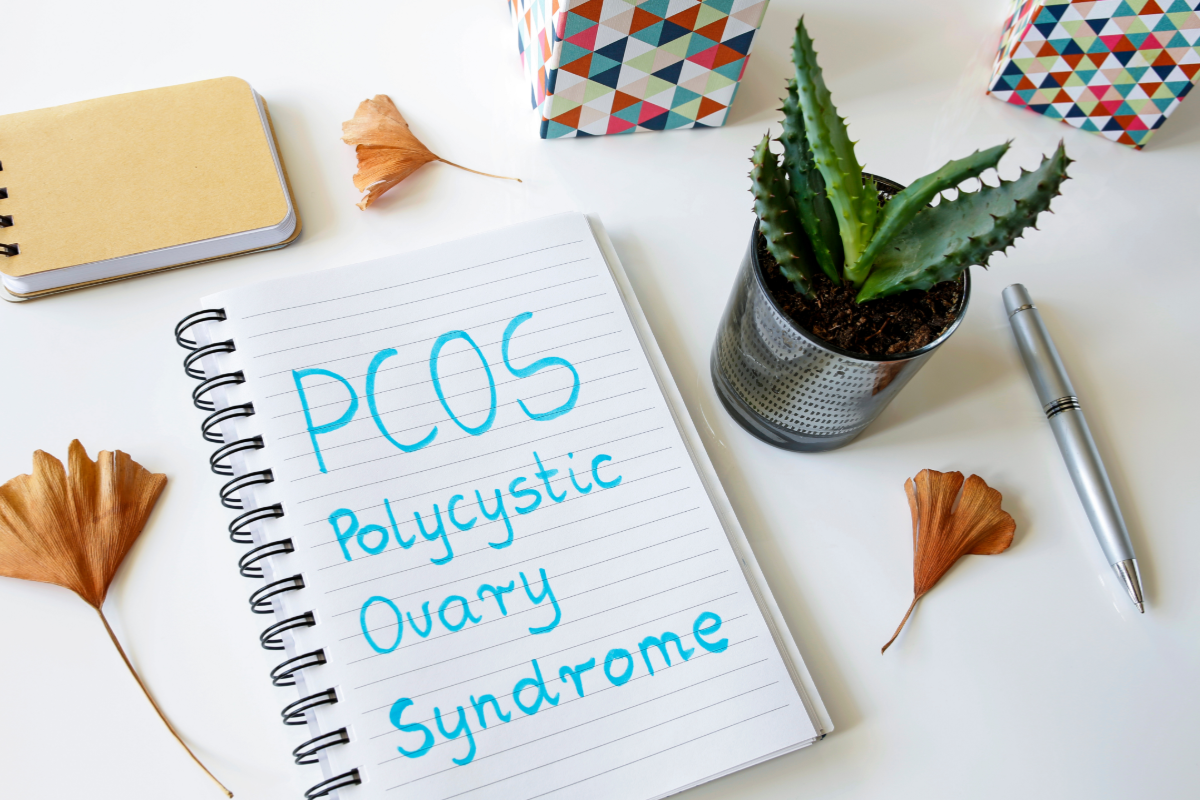
7 Evidence-Based Tips to Reduce PCOS Symptoms
What is Polycystic Ovary Syndrome (PCOS)
Polycystic Ovary Syndrome (PCOS) is a hormonal disorder affecting millions of women worldwide. It can lead to various symptoms, including irregular periods, weight gain, acne, and excessive hair growth. While there's no cure, research shows that lifestyle changes and targeted strategies can significantly reduce symptoms and improve quality of life.
Signs You Might Have PCOS
Recognising the signs of PCOS is the first step toward effective management. Common symptoms include irregular or missed periods, which indicate ovulation issues. Many women with PCOS also experience excessive hair growth on the face, chest, or back (hirsutism) due to elevated androgen levels. Other signs include acne, oily skin, and thinning hair or male-pattern baldness. Weight gain, particularly around the abdomen, is another hallmark symptom, often tied to insulin resistance. Additionally, some women may notice dark patches of skin (acanthosis nigricans) around the neck, armpits, or groin. If you’re experiencing any of these symptoms, consult a healthcare professional for a proper diagnosis and tailored treatment plan.
Here are seven evidence-based tips to help you manage PCOS effectively.
1. Adopt a Balanced, Low-Glycemic Diet
A low-glycemic diet can stabilize blood sugar levels, which is crucial for women with PCOS, as insulin resistance is a common issue. Studies suggest that a diet rich in whole grains, vegetables, lean proteins, and healthy fats helps reduce insulin spikes, a significant driver of PCOS symptoms.
Foods to focus on:
- Non-starchy vegetables (broccoli, spinach, kale)
- Lean proteins (chicken, turkey, tofu)
- Healthy fats (avocado, nuts, olive oil)
- Low-glycemic fruits (berries, cherries, apples)
Avoid refined carbohydrates, sugary snacks, and processed foods to prevent blood sugar fluctuations.

2. Incorporate Regular Physical Activity
Exercise is essential for managing PCOS. It improves insulin sensitivity, aids weight management, and supports mental health. Research highlights the benefits of both aerobic exercise and strength training in reducing PCOS symptoms. Aim for at least 150 minutes of moderate-intensity exercise weekly.
Effective workouts include:
- Brisk walking or jogging
- Cycling
- Resistance training (weightlifting or bodyweight exercises)
- High-intensity interval training (HIIT)
Physical activity also helps lower androgen levels, which can reduce symptoms like excessive hair growth and acne.

3. Focus on Weight Management
Even a modest weight loss of 5-10% can significantly improve PCOS symptoms by enhancing insulin sensitivity and regulating menstrual cycles. Weight management helps reduce the risk of long-term complications such as type 2 diabetes and cardiovascular disease.
Rather than extreme dieting, focus on sustainable lifestyle changes. Combine a nutrient-dense diet with regular exercise for long-term results.

4. Manage Stress Levels
Chronic stress can worsen PCOS symptoms by increasing cortisol levels, which may further disrupt hormonal balance. Incorporating stress management techniques can positively impact both physical and mental health.
Effective stress reduction practices include:
- Meditation and mindfulness exercises
- Yoga, particularly restorative or yin yoga
- Deep breathing techniques
- Journaling
These practices can help regulate your menstrual cycle and improve sleep, mood, and overall well-being.

5. Prioritize Sleep Hygiene
Poor sleep quality is linked to increased insulin resistance and elevated androgen levels, which can exacerbate PCOS symptoms. Adults should aim for 7-9 hours of quality sleep per night.
Tips for better sleep:
- Establish a consistent sleep schedule
- Avoid screens at least an hour before bedtime
- Create a relaxing bedtime routine (reading, light stretching)
- Keep your bedroom cool, dark, and quiet
Addressing sleep issues can enhance mood, reduce cravings, and improve hormonal balance.

6. Consider Supplements
Certain supplements have shown promise in managing PCOS symptoms, though they should complement, not replace, a healthy diet and lifestyle. Always consult your healthcare provider before starting any supplements.
Commonly recommended supplements include:
- Metabolism & Energy Superblend: Helps support weight loss, reduce appetite and support healthy metabolism and blood sugar levels.
- Inositol (myo-inositol and d-chiro-inositol): Improves insulin sensitivity and may help regulate menstrual cycles.
- Omega-3 fatty acids: Found in fish oil, omega-3s can reduce inflammation and improve lipid profiles.
- Vitamin D: Many women with PCOS have low vitamin D levels, which may worsen symptoms.
- Magnesium: Helps with insulin sensitivity and may reduce stress levels.
7. Work with a Healthcare Professional
PCOS management is not one-size-fits-all. Partnering with a healthcare provider, such as an endocrinologist or a registered dietitian, can help you develop a personalized plan. They may recommend medications like metformin for insulin resistance or hormonal birth control to regulate menstrual cycles.
Regular check-ups ensure that your symptoms are monitored, and your treatment plan is adjusted as needed. This proactive approach helps manage PCOS effectively and reduces the risk of associated complications.

While PCOS can be a challenging condition to navigate, implementing these evidence-based strategies can significantly reduce symptoms and improve your overall health. By focusing on a balanced diet, regular exercise, stress management, and quality sleep, you can take control of your PCOS journey. Don't hesitate to seek professional guidance for a tailored approach to managing your symptoms.
Frequently Asked Questions
1. Can PCOS be cured?
Currently, there's no cure for PCOS, but symptoms can be effectively managed with lifestyle changes, medical treatment, and supportive care.
2. Is weight loss always necessary for managing PCOS?
Weight loss is beneficial for those with PCOS and insulin resistance, but not everyone with PCOS is overweight. The focus should be on healthy habits that improve hormonal balance.
3. Are birth control pills safe for women with PCOS?
Hormonal birth control can help regulate periods and reduce androgen levels. However, it's important to discuss potential side effects with your doctor.






Leave a comment
This site is protected by hCaptcha and the hCaptcha Privacy Policy and Terms of Service apply.